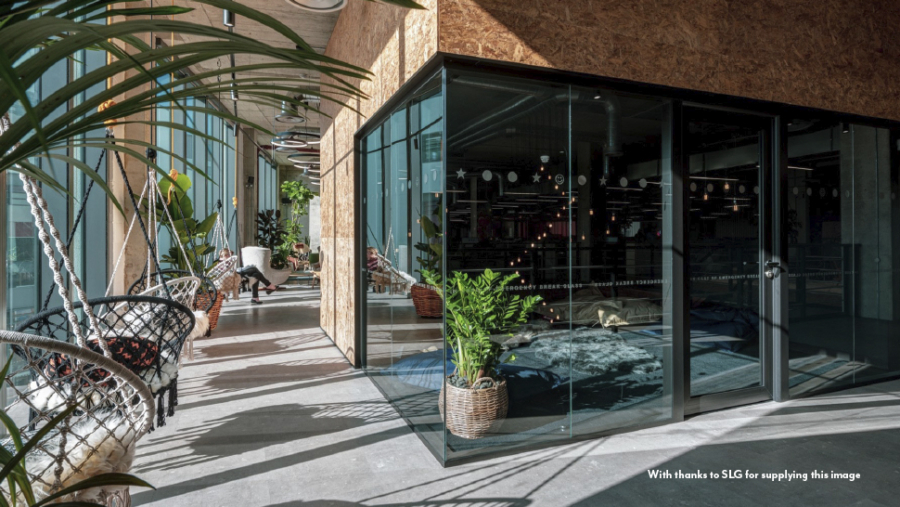

Hybrid working is looking like the biggest change for workplaces in 2021. As the vaccine rolls out and the UK begins to recover from the impact of Covid-19, we will, inevitably, go back to the office. With it likely being less frequent, and offices being less busy, it gives employers to repurpose their space and use the workplace in an entirely different way.
New research, published in our Future Workspaces report, shows the real benefits in thinking outside the box when it comes to office spaces. But whilst nobody wants to dampen the enthusiasm for innovation, it’s important to ensure that in making changes, you are not creating a problem for yourself by breaching the lease or inadvertently increasing your liabilities to the landlord when you yield up the lease in several years’ time. Set out below are a few considerations to bear in mind:
- Understand what is included within your demise. For example windows, ceiling voids or areas below a floating floor. You will also need to check if there are other restrictions, e.g. if it’s in a conservation area. Depending on the circumstances, your ability to make changes may be heavily restricted and the administrative burden required before you undertake the works may be increased.
- Establish if an application for consent from the landlord is required. It is common for tenants to be able to undertake ‘nonstructural alterations’ without reference to the landlord, but you will need to check what your lease says on the subject.
- If in doubt, an application to the landlord should be submitted. This should be supported by scale plans showing what is intended and where it will be installed. The landlord is entitled to a ‘reasonable period’ to consider the application and you will need to build this into your project plan. If a licence to consent is required you must ensure there is clarity about what will happen at lease expiry. Getting that wrong can be costly when it’s time to exit.
- If you are looking at an area outside of your demise, you will need to negotiate additional rights with the landlord. An allotment on the roof may be easy to install for example, but your access rights to the roof may be limited to the maintenance of service plant situated there. If other tenants also have access rights, ensure that your proposed use won’t be disturbed by their rights.
- One final thought is about the contractor employed to undertake the changes for you. If you are looking at new or untested technologies make sure you obtain references and check the solvency of the company. If they are the only company that can properly remove the installation for you in five years’ time, your exposure could increase if they are no longer available to assist you with that process.
If all of this seems like a headache, and you’re looking for support, we’re here to help.
We would also like to give you access to the full 95-page Future Workspaces report, of which office design is one of many topics discussed and debated. Download your free copy here.










